A convincing vegan cheese is the unicorn of plant-based. Many producers have come close to creating a dairy alternative that combines the umami, sweet and nutty characteristics of cheese. But not close enough.
If the plant-based movement is to further its progress and encourage the sales of products that have both nutritional and environmental benefits, then cheese needs to be its primary focus. Why? Because Brits love real cheese and won’t settle for anything less, not even for a close second. A survey by Nature’s Heart proves that, claiming 40% of people could not go without dairy cheese.
Vegan cheese sales have remained small, achieving a take-home value of £174m, accounting for 5% of the wider cheese category [Kantar 12 months to 4 Sept 2022]. In contrast, for the same period, milk alternatives were worth £531.2m, accounting for more than 15% of the wider milk category.
People love cheese, so it’s particularly grating that successful alternatives in other plant-based segments, such as meat and milk alternatives, have shown such strong growth. Although going through a period of consolidation, meat-free market value now stands at £391.6m [Kantar, 52 w/e 16 Apr 23].
So why can’t the food boffins get plant-based cheese right?
Coconut oil has a strong taste and other attributes
The difficulty in reproducing cheese in plant-based form comes from milk’s unique structure. Milk contains two types of protein – casein and whey. Casein is key to making cheese, as when milk curdles, casein forms the solids of the cheese.
Casein stands out from other proteins because it is not coagulated by heat, which would allow it to melt instead of soften like a dairy cheese. Plant proteins have different amino acid compositions and there is no obvious casein replacement for plant-based cheese.
Though that hasn’t stopped companies over the years from trying to replicate the effects of casein with a range of fats, starches and emulsifiers. Plant-based Babybel, for example, uses modified starch and coconut oil to achieve a familiar cheesy texture. Cathedral City uses coconut oil, modified starch, potato starch, bamboo fibre and a gelling agent to a similar effect.
The problem is ingredients, such as coconut oil, have strong tastes and other attributes not conducive to the creation of the perfect cheddar.
REGISTER NOW: How to win in plant-based – The Grocer’s free webinar
And then there’s the F word: Fermentation. Any cultured cheese like cheddar is matured over a period of time to gain a complex flavour. Few brands have taken this route in plant-based cheese, opting instead to replicate the flavour with additives that lead to long ingredient lists.
Rather excitingly, however, all this could be set to change.
Biotech brand Pureture this month announced a new yeast-based casein substitute that uses yeast cultivation and protein separation to produce the plant-based protein. Notably, the casein substitute is a protein, not a starch, gum or emulsifier – so significant progress has already been made to replicate the missing link.
The brand claims the yeast-based ingredient is flavour free with no smell or colour and could be used in the creation of plant-based cheese and yoghurt.
Casein alternatives aren’t on shelf yet
Although Biotech is not alone in claiming to have made such a significant and udder-shaking discovery.
Climax Foods, for instance, says it has produced a similar product from plant proteins, while Fooditive has used gene synthesis to produce casein through what it calls a “unique bacterial strain”.
Bel Group, which makes Babybel, partnered with Standing Ovation last year to incorporate a dairy-free casein protein which is produced using precision fermentation. But these casein alternatives are yet to hit supermarket shelves, so the jury is still out on their success – and taste.
A protein-based casein alternative could allow dairy-free cheese to be made in a much more traditional way, and would likely produce something more familiar to the product 40% of Brits say they can’t live without – dairy cheese.
It could take months for vegan casein to start being used in supermarket cheese alternatives, but when it does it could mean dairy-free cheese that can truly challenge traditional dairy on its own turf.








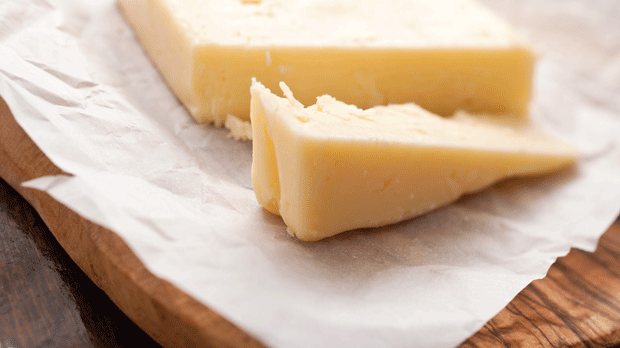


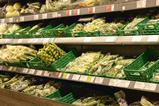

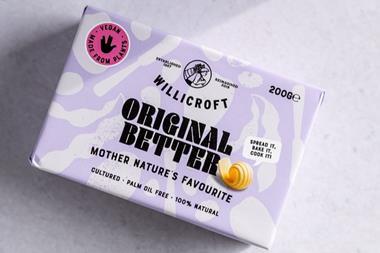
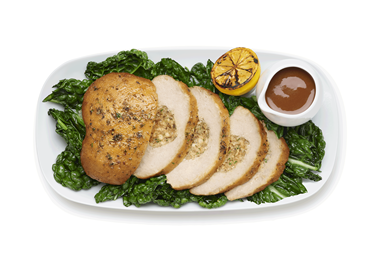

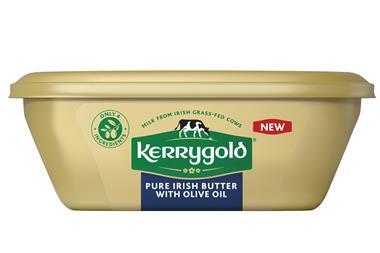








No comments yet